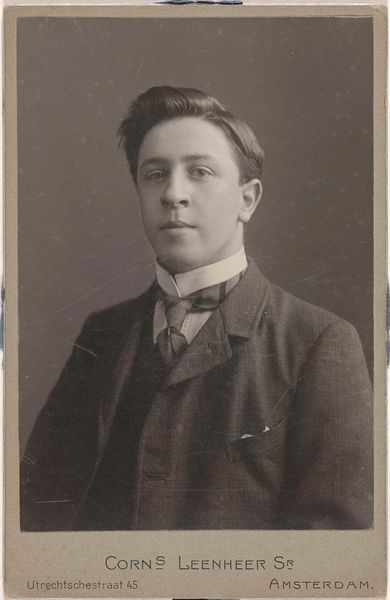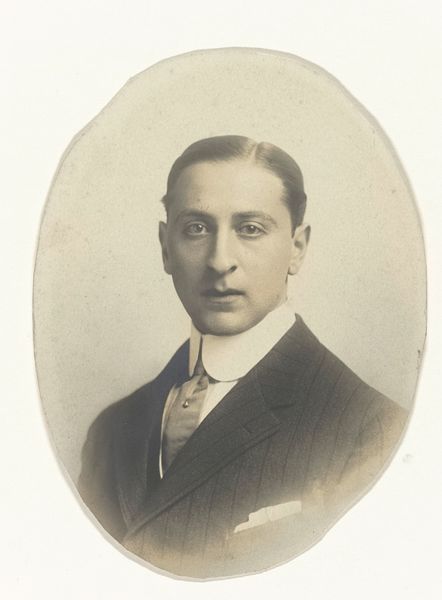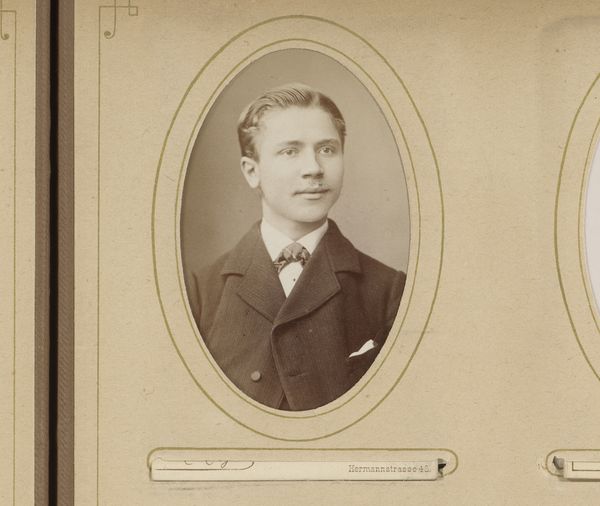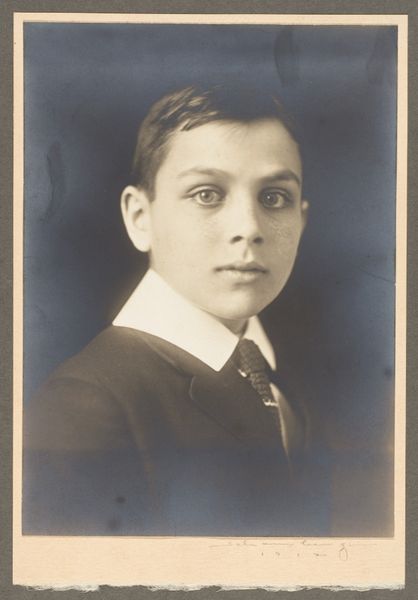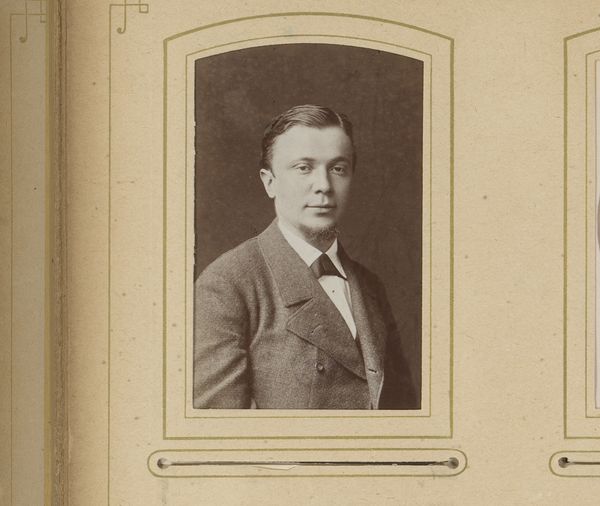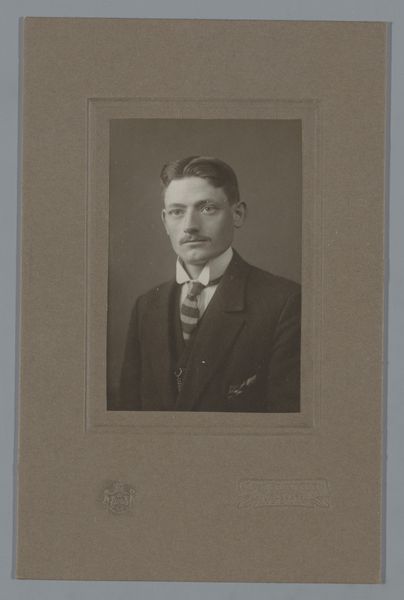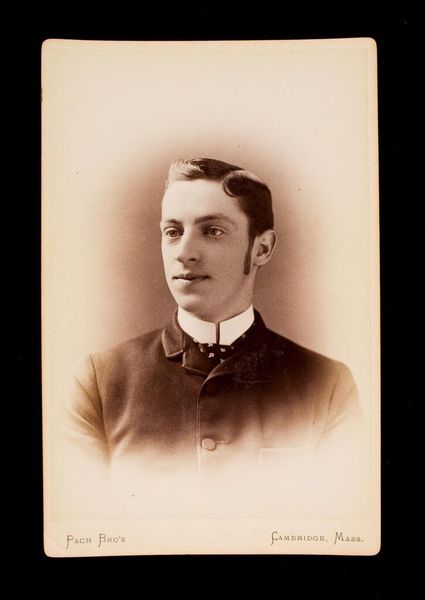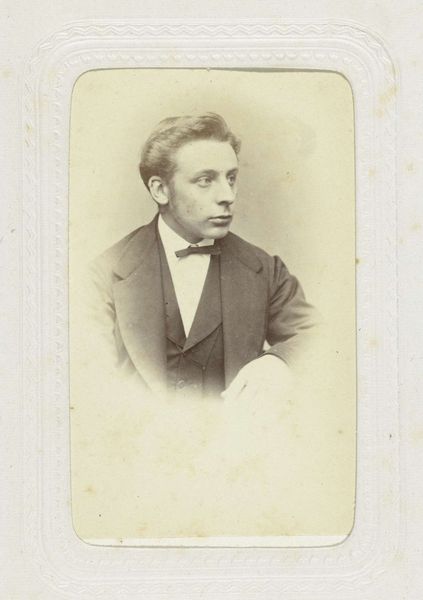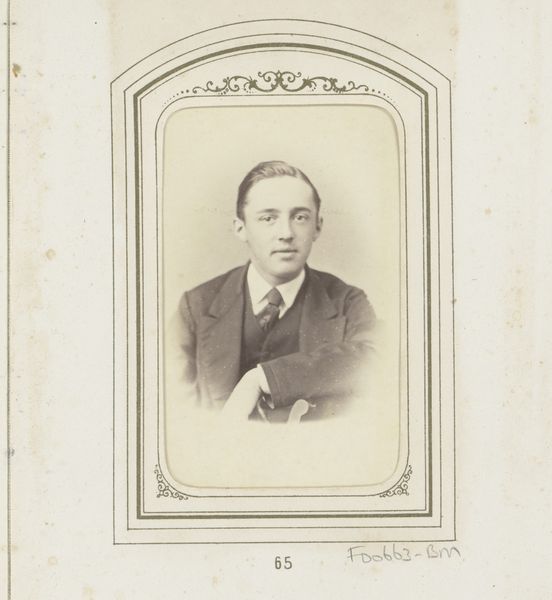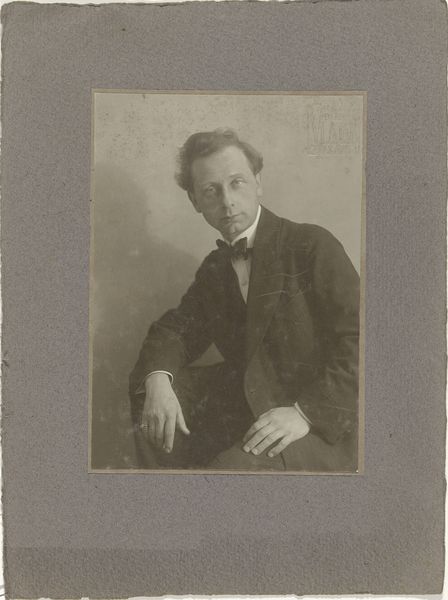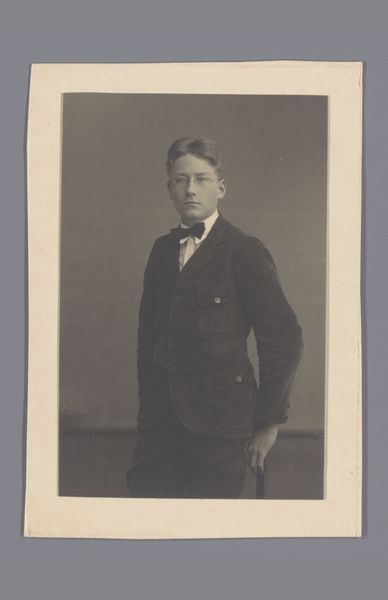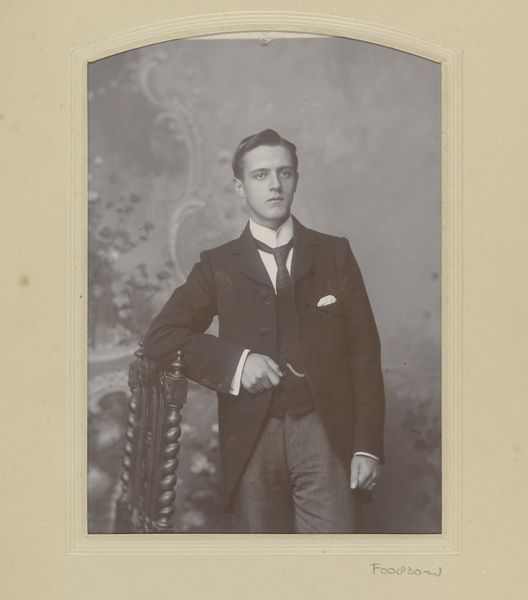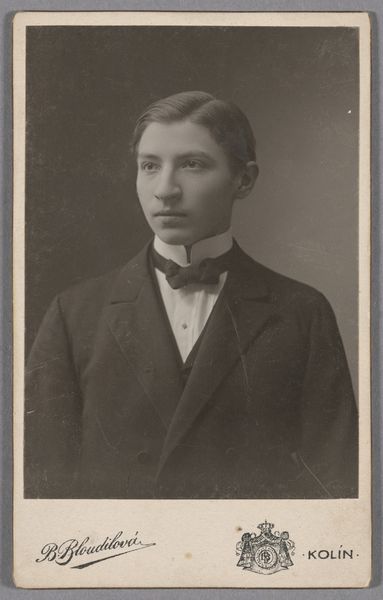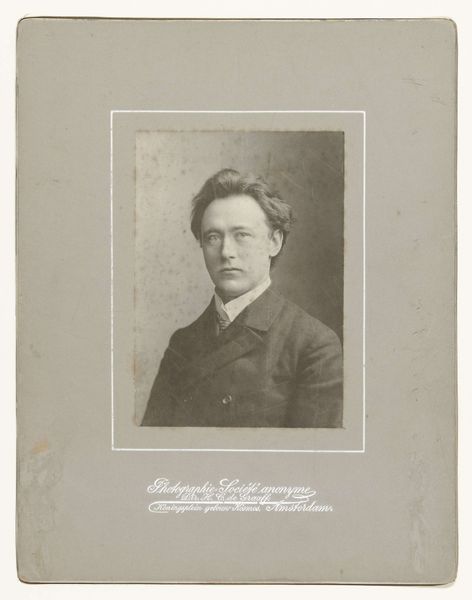
photography
#
photography
#
historical photography
#
academic-art
#
realism
Dimensions: height 168 mm, width 118 mm, height 324 mm, width 267 mm
Copyright: Rijks Museum: Open Domain
This sepia photograph portrays Paul Huf, though we don’t know when it was made, nor who made it. As such, this work highlights how the creation and preservation of images is dependent on shifting cultural and institutional forces. In the early to mid-20th century, photographic portraiture was in transition. While it had become more accessible to the middle classes, it was still a carefully staged affair. The sitter's pose, attire, and expression were all consciously chosen to convey a certain social status or personal narrative. Note how Huf is wearing a tuxedo, bowtie and flower. These are all visual codes for wealth, formality and even elegance. But what happens to these codes when the author and date are unknown? The image becomes a kind of archive. What was once a statement of individual identity becomes a historical document. The role of institutions like the Rijksmuseum is crucial here. Through careful research and preservation, museums can offer viewers a window into the past. They can remind us that the meaning of an artwork is always contingent on its social and institutional context.
Comments
No comments
Be the first to comment and join the conversation on the ultimate creative platform.
